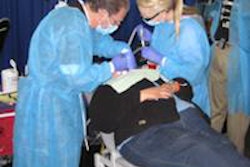
Texas Attorney General Greg Abbott filed a civil lawsuit today in state district court against Xerox and its ACS Healthcare wholly owned subsidiary to recover allegedly fraudulent Medicaid payments for orthodontic and dental services that were approved by Xerox.
Xerox has served as the vendor responsible for reviewing dental and orthodontic claims submitted to the Medicaid program since 2003, according to a press release. Under Texas state law, orthodontic services are not generally eligible for coverage under the Medicaid program.
“The task force uncovered evidence revealing that Xerox systemically approved orthodontic claims that were not authorized by state law.”
The suit emerged from a lengthy multiagency investigation into orthodontic Medicaid fraud. In June 2012, the attorney general's office, together with the Texas Health and Human Services Commission (HHSC) and the HHSC-Office of Inspector General, formed a dental and orthodontic fraud task force to investigate fraudulent overbilling by dental and orthodontic Medicaid providers.
The task force's investigation found that Xerox had not been properly reviewing orthodontic claims as required by its contract with Texas, according to the attorney general's statement. Furthermore, the task force found evidence that Xerox approved unauthorized claims.
"The task force uncovered evidence revealing that Xerox systemically approved orthodontic claims that were not authorized by state law," Abbott said in the statement.
Texas is seeking to recover Medicaid payments that Xerox approved for orthodontic services that were not medically necessary and therefore not authorized, the suit states. The complaint also seeks injunctive relief, civil penalties, and restitution of overpayments made by the Medicaid program as a result of Xerox's unlawful conduct.
Xerox denied culpability, saying the company is "disappointed with the HHSC decision to replace Xerox as Medicaid provider."
"We have never engaged in fraudulent activity and always operated with complete transparency," the company said in a statement sent to DrBicuspid.com.
Only the most acute cases in which orthodontic disfigurement poses a health risk to a patient are eligible for Medicaid coverage, the suit noted, and the Medicaid program does not cover cosmetic orthodontics.



















